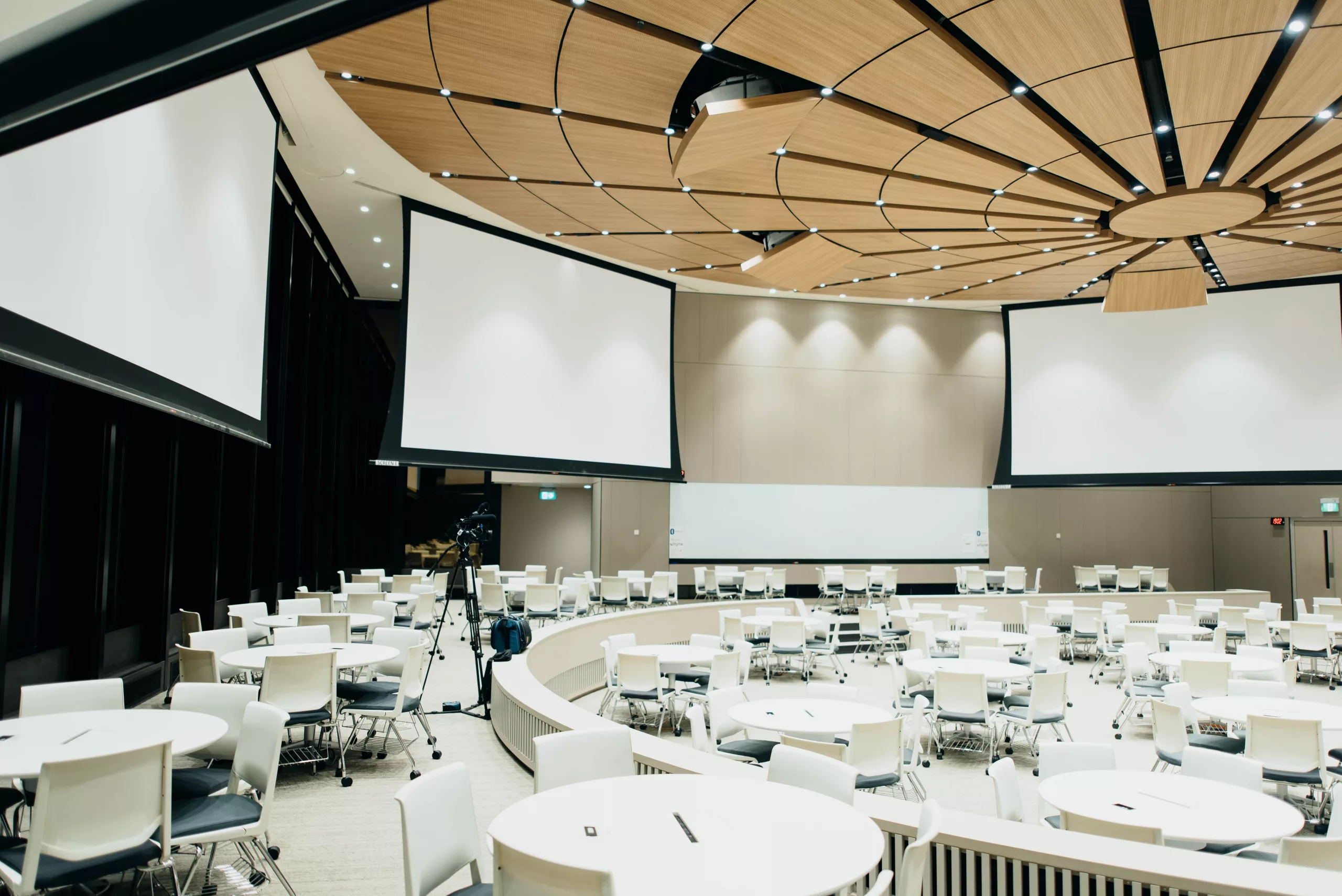DERECHO INTERNACIONAL
The OAS and its Role in Private International Law on the Continent

por Diego Lacayo-Jaén | Private International Law | 12 sept. 2023
El derecho internacional privado es una rama fundamental del derecho que se encarga de regular las relaciones jurídicas que surgen entre particulares de diferentes países o entre particulares y entidades extranjeras. La OEA es el principal foro político y jurídico de la región, y desde su fundación en 1948, ha tenido como objetivo promover la cooperación y el desarrollo económico y social de los países americanos. En el ámbito del derecho internacional privado, la OEA ha sido clave en la promoción de convenciones internacionales y principios uniformes que permitan la armonización de las leyes nacionales.
For their part, the inter-American conferences are a space for dialogue and cooperation between the member states of the OAS, whose objective is the harmonization of laws and the development of private international law in the region. These conferences have been instrumental in promoting cooperation and unification of private international law in the Americas, and have led to the adoption of international conventions and uniform principles that have been adopted by many Member States.
In this sense, I will address the importance of the OAS and the inter-American conferences in the development of private international law in America, and I will analyze the role of these institutions in the harmonization of national laws and the promotion of cooperation between the legal systems of the region. In addition, I will examine the validity of international conventions and uniform principles established in these conferences today, with special attention to adaptation to new realities such as technology and changes in international trade.
El Fortalecimiento de las Relaciones Económicas y Comerciales Entre Los Países De La Región
From a personal perspective, I consider that the development of private international law in the American continent has been an essential task to guarantee the strengthening of economic and commercial relations between the countries of the region. In this sense, the Organization of American States (OAS) has played a fundamental role in promoting and strengthening this field of international law.
The OAS is the oldest and largest regional organization in the Americas, and its main objective is to promote solidarity and cooperation among member states. In the legal field, the OAS has worked since its founding on the development and promotion of international law, with the aim of promoting cooperation and dialogue between member countries.
One of the most important topics in the field of international law that has been promoted by the OAS is private international law, which refers to the rules that regulate relations between individuals from different countries. Private international law is essential to guarantee legal certainty in commercial transactions and the protection of people's rights, especially in an increasingly globalized world.
In this context, the OAS has played a key role in promoting and strengthening private international law in the American continent. First, the OAS has worked on the development and adoption of international legal instruments, such as treaties and conventions, that establish uniform standards in the field of private international law.
Puede interesarte también: Competition and Regulation in the Panamanian Banking Sector

STANDARDS AND COOPERATION PROMOTED BY THE OAS
The OAS has promoted cooperation and harmonization of laws among member states. This has been instrumental in establishing a coherent legal framework for cross-border private relations in the region.
The OAS's role in the development of private international law has fostered the creation of international conventions and provided a forum for discussion and cooperation among member states. The OAS has helped establish international standards in areas such as family law, commercial law, and intellectual property law. It has also promoted the adoption of international treaties on jurisdiction and the recognition and enforcement of foreign judgments.
In particular, the OAS has played an important role in promoting the harmonization of laws in Latin America. In this regard, the OAS has worked closely with the UN International Law Commission to develop model conventions on various topics of private international law. The adoption of these models has allowed Member States to have a basis for the development of consistent and harmonized domestic laws.
In addition, the OAS has actively worked to strengthen the role of national courts in the application of private international law. The organization has promoted the training of judges and established technical assistance programs. Thus, it seeks to improve the capacity of national judicial systems to deal with cross-border cases. This has been especially important in Latin America, where judicial systems often face significant challenges in terms of capacity and resources.
The challenges presented by technology and e-commerce require continued attention to ensure a uniform and effective legal framework.
I consider that the Inter-American Conferences have been a key forum for the codification of private international law in the American continent. From the first conference held in Montevideo in 1889 to the most recent one in La Paz in 2017, conferences have been instrumental in promoting cooperation and harmonization of laws in the field of private international law.
The conferences have had an important influence on the creation of international conventions and the adoption of common principles. The Havana Conference of 1928 was especially relevant. This led to the creation of the Bustamante Code, one of the most important conventions of private international law in Latin America. The Bustamante Code established uniform principles for jurisdiction, the recognition and enforcement of foreign judgments, and the law applicable in cross-border cases. This allowed Member States to have a coherent and uniform legal framework regarding private international law.
Another important conference was the Montevideo Conference of 1940, which culminated in the adoption of the Convention on Private International Law. The Convention was the first attempt in Latin America to create a general legal framework for cross-border private relationships, and focused on issues of family law, inheritance, contracts and intellectual property. The Convention also established uniform principles for the jurisdiction, recognition and enforcement of foreign judgments. Although the Convention was not ratified by all member states, it laid the foundations for the development of private international law in the region.

VALIDITY OF INTER-AMERICAN CONFERENCES TODAY
The validity of the inter-American conferences in the codification of private international law is undeniable. The conventions and principles established at the conferences have been adopted by many Member States, and have been instrumental in the development of uniform domestic laws. The creation of uniform principles has also allowed for greater cooperation and harmonization between the legal systems of the region.
The 2017 La Paz Conference, for its part, adopted the American Declaration on Private International Law. The declaration reaffirmed the fundamental principles of private international law, including autonomy of will, certainty of law, equality of parties and international cooperation. Additionally, the statement focused on emerging issues such as personal data protection, intellectual property and electronic commerce.
However, I think that there are pending challenges in the development of private international law in the region. Despite the progress made, ratification of international conventions has been limited. The application of the uniform principles has been inconsistent in some cases. Furthermore, technological development has presented new challenges in the field of private international law. These include the protection of personal data and the regulation of electronic commerce, which require continued attention from Member States.
The challenges presented by technology and e-commerce require continued attention to ensure a uniform and effective legal framework. Furthermore, the ratification and implementation of international conventions and uniform principles remains a challenge in some cases.
CONCLUSIONS
Ultimately, the success of private international law in the Americas will depend on the ability of member states to cooperate and harmonize their laws. Inter-American conferences will continue to be a key forum for this purpose, and it is important that Member States continue to actively participate and commit to the continued development of private international law in the region.
The OAS has played a fundamental role in the development of private international law in the American continent. Through promoting cooperation, harmonizing laws and strengthening national judicial systems, the organization has worked to establish a coherent legal framework for cross-border private relations in the region. The progress made in the development of private international law in Latin America has been significant, and the OAS has been a key actor in this process.
The inter-American conferences have been fundamental in promoting cooperation and harmonization of private international law in the Americas. The international conventions and uniform principles established at these conferences have been adopted by many Member States, allowing for the development of uniform domestic laws and greater cooperation between legal systems in the region.
The American Declaration on Private International Law adopted at the 2017 La Paz Conference is a clear example of the commitment of member states to the development and continuous updating of private international law. The declaration recognizes the need to adapt to new realities, such as technology and changes in international trade, and promotes cooperation between Member States to find common solutions.
References
- Maekelt, T. (2001). El Desarrollo del Derecho Internacional Privado en las Américas. Caracas, Venezuela.
- Gómez Robledo, A. (2001). El derecho internacional privado en la OEA. Revista de derecho privado, (2), 123-138.
- Pérez-Perdomo, R. (2004). El derecho internacional privado en América Latina: Un enfoque progresista. Revista de derecho privado, (8), 7-38.
- Conferencias Interamericanas de Derecho Internacional Privado (2017).
- Convención Interamericana sobre el Derecho Aplicable a los Contratos Internacionales (2016).
- Convención Interamericana sobre Normas Generales de Derecho Internacional Privado (2010).
- Convención Interamericana sobre Eficacia Extraterritorial de las Sentencias y Laudos Arbitrales Extranjeros (1994).
- Arias, L. (2019). El derecho internacional privado en América Latina: Pasado, presente y futuro. Revista de derecho privado, (20), 83-96.

